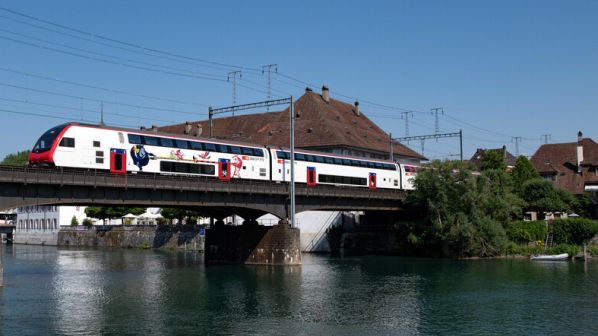The railway recorded SFr 9.86bn ($US ) of revenue in 2019, up 2.3% from SFr 9.64bn in 2018. Operating expenses increased 3.5% from SFr 9bn to SFr 9.37bn, while Ebit dropped 16.8% from SFr 586m to SFr 487m. SBB recorded a group result of SFr 463m, down 18.5% from SFr 568m in 2018.
In total, 89.5% of passenger trains (down 0.6%) arrived on time in 2019, while passenger satisfaction increased 0.6% to 75.5 points. SBB says there is a need to improve the information available in the event of delays and faults.
The number of rail passes increased by 2% to around half a million, while the number of half-fare travelcards also rose by 5%. This means more than 3.2 million passengers hold a half-fare card or a general subscription - around 40% of the Swiss population.
International rail traffic has increased 7% compared with 2018, although the December strikes in France slowed growth slightly. This year, SBB plans to work with German Rail (DB), Austrian Federal Railways (ÖBB), French National Railways (SNCF) and Italian State Railways (FS) to expand the range of international passenger services and further improve services such as end-to-end electronic tickets and customer information.
Competition authorities are expected to announce a decision on Swiss Combi’s plans to acquire a 35% stake in SBB’s rail freight subsidiary SBB Cargo in the spring. SBB Cargo’s Swiss division broke even in 2019, while the international division recorded a positive result of SFr 5.5m.

